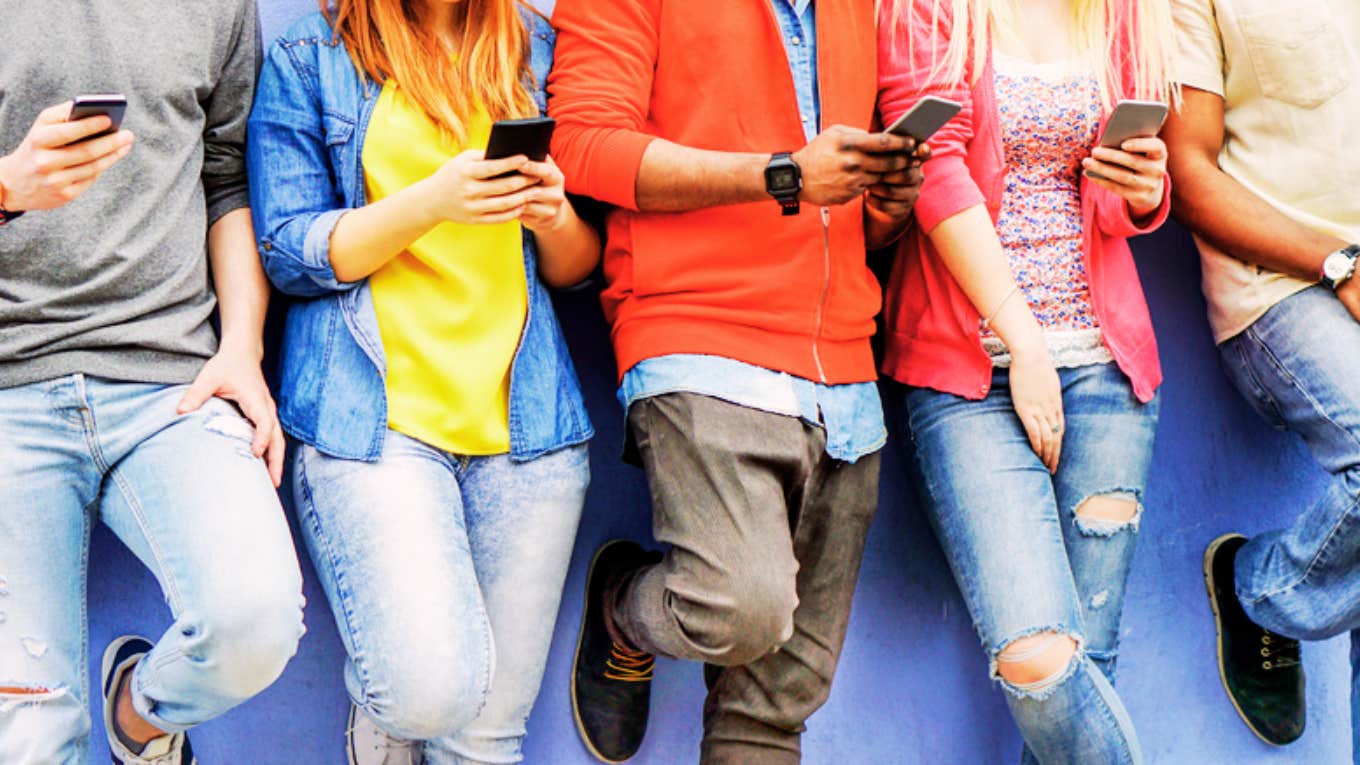The Communication Habit Millennials Refuse To Break Even Though They Should
It is often used to break tension. However, has it been done to death?
 Tint Media / Shutterstock
Tint Media / Shutterstock Over the years, millennials and Gen-Z have formed various methods of communication, including slang and code words when they are communicating over electronic messages.
Some popular new terms that have gained popularity include “omg,” (oh My God), “ikr,” (I know, right), “idc,” (I don’t care), and “wya” (Where You At).
Many of us have integrated these terms into our everyday vocabulary, even when we are communicating with people who may have no idea what they mean.
While it has become normal, especially for millennials, to use slang, there is one term they may want to reconsider using on such a regular basis.
Millennials should break the habit of using ‘lol’ to conclude every sentence.
The term “lol” (laugh out loud) has become so common that there are even emojis to represent it. It was first used in text messages, social media, and online conversations to indicate that something is funny.
 Dean Drobot / Canva Pro
Dean Drobot / Canva Pro
However, nowadays, millennials and even Gen Z have fallen into the habit of using “lol” to replace a punctuation mark at the end of a sentence.
“Hey, are you coming over later, lol?”
“Get home safe, lol.”
“I’m so mad at my boss, lol.”
If you are a millennial, you have most likely sent a message identical or in a similar form to those above, whether it be to a friend, a partner, or even a work colleague.
Even if the context of the conversation is not meant to be funny, using 'lol' has become a way to break the tension and make the other people you are conversing with feel at ease.
“It’s like a tension-breaking mechanism,” Rebecca Reynoso, a millennial who often adds “lol” at the end of her work messages, told HuffPost.
“Lol” is also used by millennials to convey the message to others that what they are saying should not be taken seriously.
“It’s the difference between texting ‘I think I love you’ to a crush versus ‘I think I love you, lol,‘” Nick Russell, another millennial, told the outlet. “In the latter case, I could always rely on the old ‘just kidding!’”
The term also reduces hostility and passive-aggressiveness over text. For example, texting your partner “Could you put your dirty clothes in the hamper?” as opposed to, “Can you put your dirty clothes in the hamper lol” can make someone feel as if they are reading two entirely different sentences.
Some millennials may interpret the first message as a hostile one, even if the person on the other end did not intend it to be. The second, on the other hand, diffuses tension and can be read as a gentle reminder rather than nagging.
Millennials should consider using 'lol' only when it’s appropriate instead of relying on it as a crutch to ease potentially awkward conversations.
As opposed to the generations before them, millennials and Gen-Z appear to be highly sensitive and aware of other people’s feelings. They want to make everyone feel as comfortable as possible and encourage themselves to prioritize inclusivity and empathy.
Societal shifts towards valuing diversity and inclusion may have influenced millennials to be more conscious of others' feelings. Social media has also played a large role, as millennials are often exposed to diverse perspectives and may feel pressure to navigate interactions sensitively.
Adding “lol” to their messages, no matter the context gives millennials some assurance that they are putting the other person or people at the end of the line at ease and fostering a comfortable space with them.
However, you should not be so concerned with the comfortability of others to the point where you need to add electronic laughter over messages.
 Dragana Gordic / Shutterstock
Dragana Gordic / Shutterstock
Even though it is easier to read someone’s mood during a face-to-face interaction, most people will be able to tell when you are truly being hostile or if you are angry, even if you do not add “lol” at the end of your sentences.
As humans, we often worry that others will perceive us as unkind or bitter and feel the need to do everything to ensure that we are not. If "context is king," millennials are certainly in line for the throne.
Daria Bahtina, a linguistics lecturer at the University of California, Los Angeles, put it perfectly in an interview with HuffPost, “For millennials, it’s a way to either make a neutral message warmer and more casual or a way to make a more negative message polite. It’s like hedging or minimizing a request with ‘no biggie if you disagree.’”
Megan Quinn is a writer at YourTango who covers entertainment and news, self, love, and relationships.

